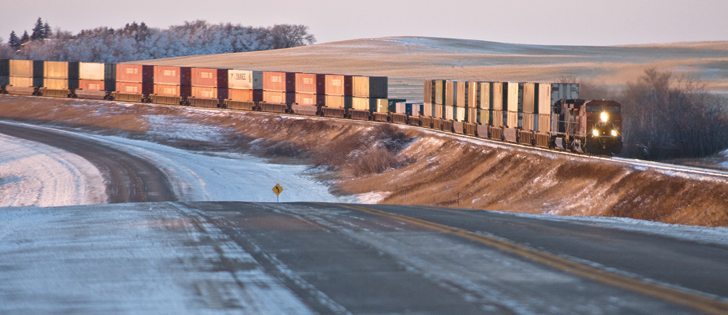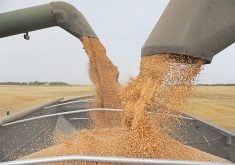Saskatchewan premier Brad Wall suggested last week that Canada’s transportation infrastructure should be an essential service under federal legislation.
He told the Saskatchewan Association of Rural Municipalities annual convention that it’s at least worth having a conversation about the idea, when so much of the country’s economy relies on exports.
“That transportation system is the lifeblood of this economy,” he said.
“Everything that we prize, our quality of life, our chance to grow, our chance to succeed, rests on our ability to export, rests on our ability to be a reliable supplier of food and energy and all of the other things that Canada makes.”
Read Also

Gene editing digs deeper space in Canadian plant breeding
More Canadian research into crop variety development is incorporating gene editing, and one researcher notes that Canada’s regulatory approach to gene editing will help drive innovation
Wall said every option should be explored as legislators look at how to prevent this winter’s grain backlog from happening again.
Federal transport minister Lisa Raitt said after her speech to SARM that she hadn’t heard of the idea.
“That is a tough question,” she told reporters. “You never want to make policy on the fly.”
However, she noted that railways must haul all goods under the Canadian Transportation Act.
“They have to make sure they carry everything that’s offered, and they have to provide adequate and suitable accommodation,” she said.
Shippers, particularly of grain, often complain that they don’t get that accommodation.
“Legislation is coming,” she said.
“And people should be wary about what could be in this legislation, meaning the railway companies should be wary about what’s in the legislation as we look at all the options.”
Saskatchewan has asked that the legislation include mandatory service level agreements, reciprocal penalties and a minimum of 13,000 grain cars shipped each week.
Wall said what happened in Canada this winter is unacceptable, which is why all options should include a conversation about essential services.
“Nothing should be off the table, including ensuring that the lifeblood of this country, an exporting nation, our transportation infrastructure, cannot be held hostage at any given time by management, or unions or even non-union cohorts of workers.”
Wall said even talking about essential services in transportation could send a strong message to those in the business that the economy cannot be held hostage.
















